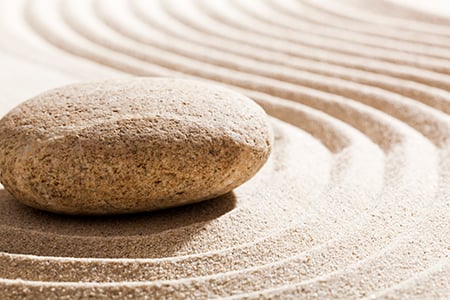How To Balance Self Care And Giving To Others
Little glimmers of self-care can certainly help, but they don’t pack enough punch to deliver the deep nurturance a modern stressed-to-the-max person needs to truly recalibrate.
For many, a large gap exists between being nurtured and nurturing others. Some of the most tender, loving, generous people tend to not share that same warmth with themselves. Though altruism and generosity are essential in healthy relationships, these individuals may use their caregiving behaviors as part of an inner mechanism based on projecting their own needs onto others. This pattern tends to build dynamics that unintentionally perpetuate codependency and insecurity within relationships.
Regardless of the specific psychological purpose of such a role, people who embody the “superstar caregiver” persona often go on cruise control in relational dynamics where they attentively take care of everyone else. This ultimately leads to severe burnout, deep resentment, and even illness due to the imbalance.
As a “giver,” one might identify as a caretaker, parent, teacher, supportive aid, empath, listener, good neighbor, nurse, or a generally altruistic person. There’s much to appreciate about those who emanate this kind of energy, but there’s a shadow side as well that’s worth investigating. In Jungian psychology, the “shadow” isn’t something to be feared, but simply an internal quality or pattern that’s kept hidden away for fear of it becoming uncomfortable, unacceptable, inappropriate, or threatening.
Every person has shadow elements of their psyche, as well as light aspects. By honestly opening up to lovingly investigate these shadow elements, we make space for unconditional love surrounding the complex nature of our selves. When embracing the natural dualities that are common among all people, we contribute to large-scale healing for our communities and our world.
In the West, women have historically fallen into the role of the caregiver in their families, social networks, and even workplaces. Meanwhile, men have often fulfilled dynamics of ambition and emotional constriction. These cultural undertones seem to be slowly but surely shifting as society comes together to shine light into shadow elements of the collective. Together we must release ourselves from the stifling boxes of stereotypes in order to access true freedom and authenticity. The work of awakening consciousness and living radiantly includes counter-balancing the palpable energy of the wounded feminine and masculine archetypes with the power of deep self-nourishment. Yes, it’s possible.
Nurturance, self-care, and rest are more than sleeping in on a Saturday twice per year when the kids are at Grandma’s house. The point isn’t to pause once every few months for a 50-minute massage before going back to the grind. Little glimmers of self-care can certainly help, but they don’t pack enough punch to deliver the deep nurturance a modern stressed-to-the-max person needs to truly recalibrate — let alone thrive. A nourishing life is one where rest, reprieve, introspection, and gentleness toward the self are an integral aspect of daily rhythm. A person whose lifestyle incorporates deep nourishment will successfully fill their emotional, physical, energetic, and psychological tanks with tender care and attunement.
This Thing Called Self-Love
Since most people haven’t been effectively taught about deep nourishment, this concept may require some patient brainstorming to discover which methods of self-care resonate most in our system. Don’t default to the cliche glass of wine in a bubble bath before learning whether this actually fills your soul. Some people like bodywork, others gravitate toward writing, doodling, playing tennis, gardening, grooming puppies, or sharing intimate conversations with trusted friends.
Here’s an exercise that can help deepen understanding of what deep nourishment and resonance are in a personal sense:
Think about what fills you up, and what depletes you. Notice when you’ve walked away from an experience thinking, Wow, that was wonderful! I should do that more often. That’s resonance.
In your journal or contemplative time, spend time pondering:
– What fills you up?
– What depletes you?
– How often do you notice both the experience of being filled-up and of being depleted in your life?
If you think of self-care as selfish or indulgent, consider changing that perspective. Keeping gentleness as an off-limits indulgence only fosters a toxic relationship to societal judgment, which effectively restrains your access to true Self. Such rigid thinking is consistent with the masculine-dominant perspective that tenderness is weak. Coping and avoidance strategies of all kinds have been built around this mentality throughout our society, meant to repress the powerful energies of oppression, inequality, shame, and resentment that live inside our collective subconscious.
Most people are intimately familiar with the slippery slope that comes when too much time has been spent without meaningful self-care, starting with irritability and burnout, and leading to an avalanche of depletion, resentment, instability, and even physical illness. It’s not possible to be all things for all people if you don’t first nourish yourself. Even then, it’s not possible to be all things for all people. As the infamous flight attendants’ directive says: “Put your own oxygen mask on before helping someone else.” So be selective and remember that we can’t pour tea from an empty pot.
Self-love is not a frivolity; it’s as essential as air. The part of us that believes taking care of ourselves is an extravagant indulgence is misguided and potentially linked to trauma. Such distorted thinking is based on old narratives that may have led to limited success in the past, but are ultimately not productive long term. With this in mind, practice gently addressing this triggered response to rest.
It’s not enough to occasionally squeeze in time for the things that nourish us. It’s important to make these a priority and grant time for them each day.
Adapted and reprinted with permission from The Radiant Life Project: Awaken Your Purpose, Heal Your Past, and Transform Your Future By Kate King (Rowman & Littlefield Publishers, Nov. 1, 2023)
Kate King is a licensed professional counselor, board-certified art therapist, radiant life coach, published author, professional artist, and creative entrepreneur. She expertly teaches a unique transformational healing strategy that integrates science, psychology, creativity, and spirituality. Her new book is The Radiant Life Project: Awaken Your Purpose, Heal Your Past, and Transform Your Future. Learn more at theradiantlifeproject.com.











